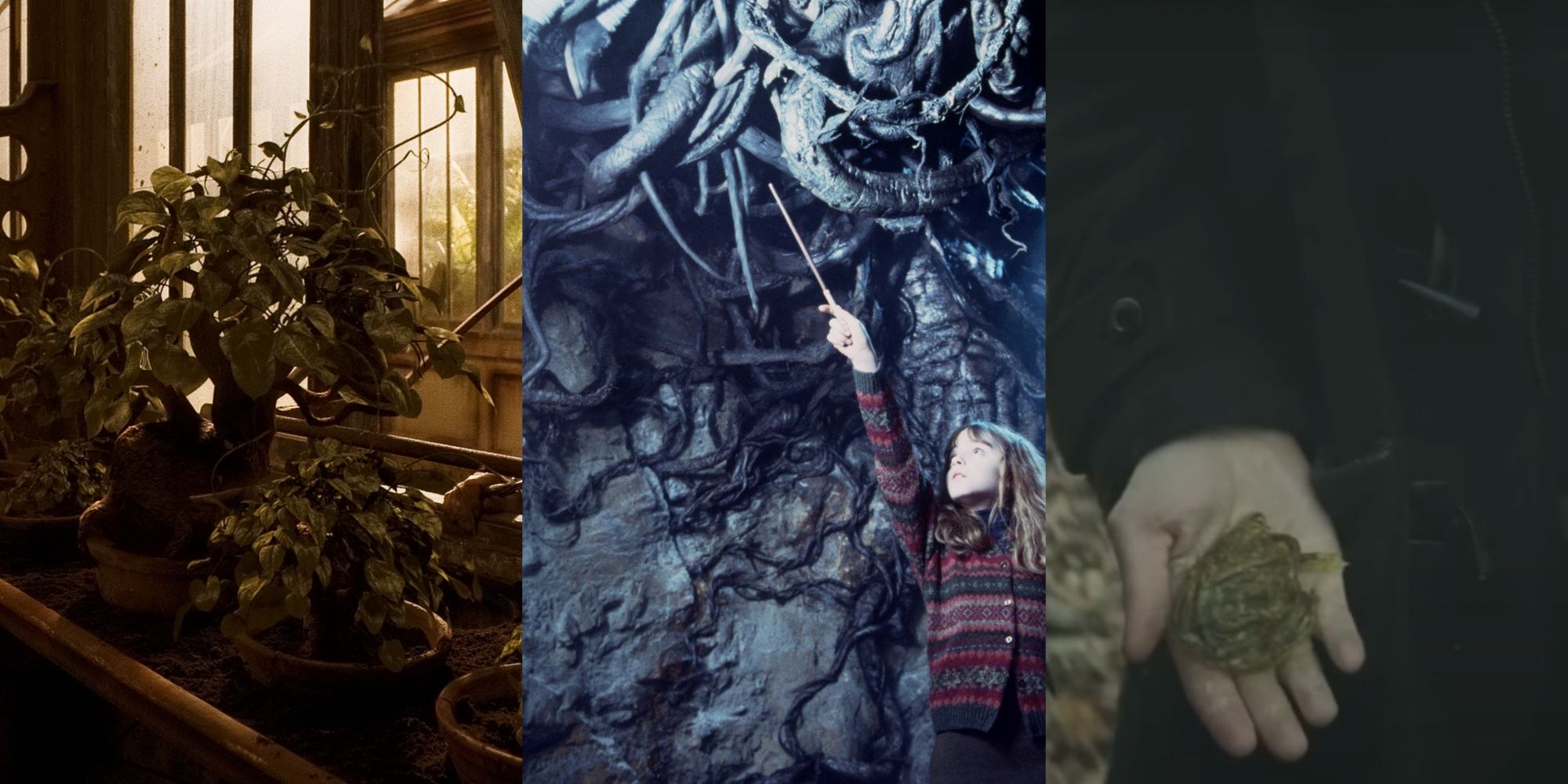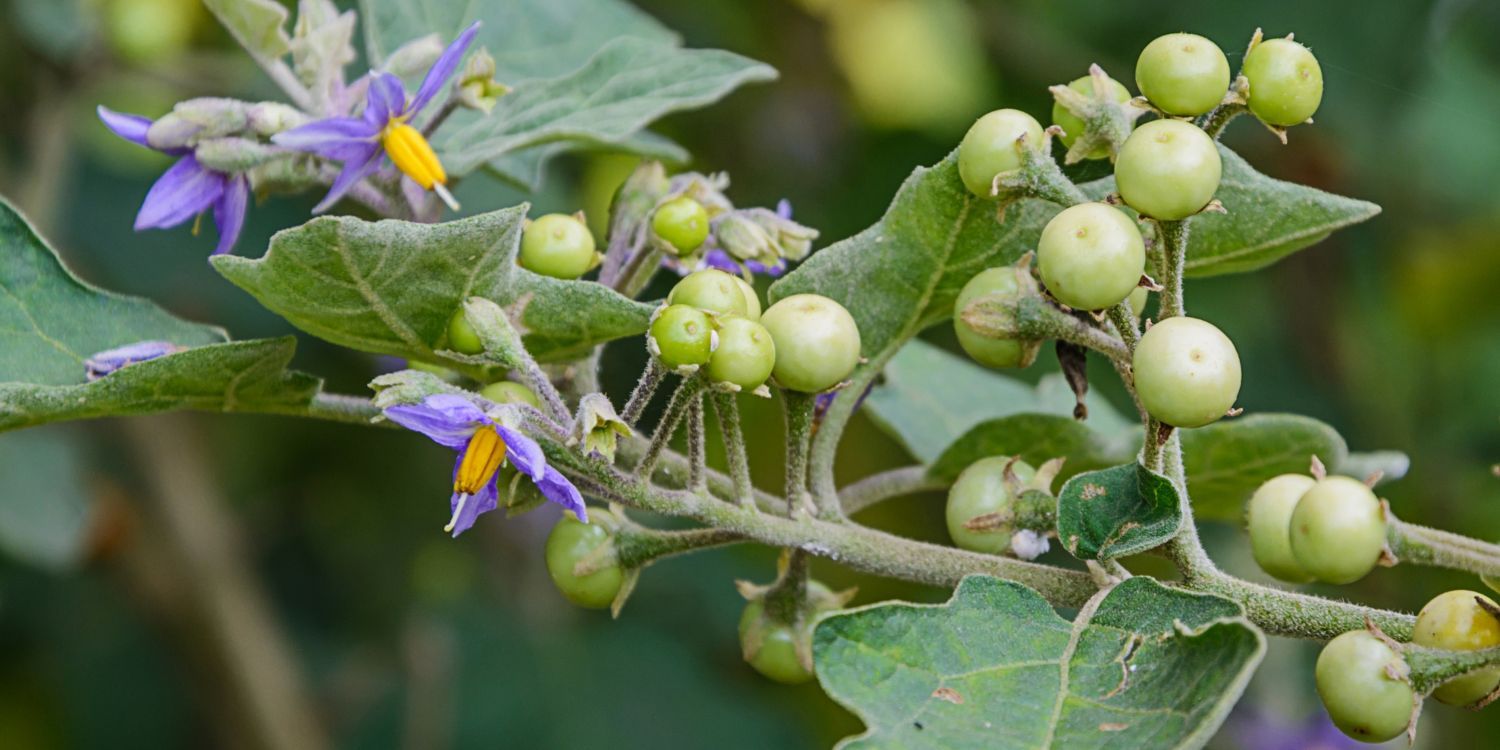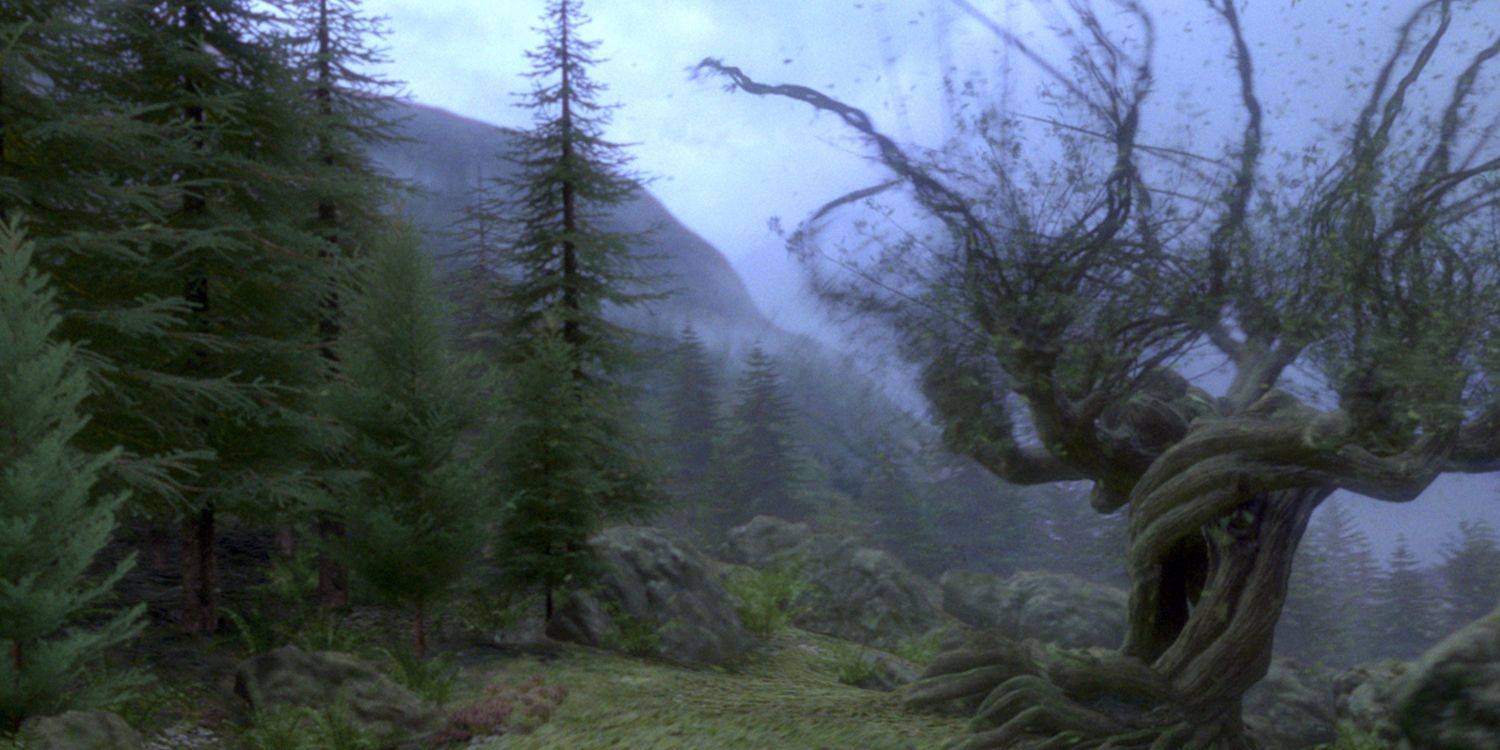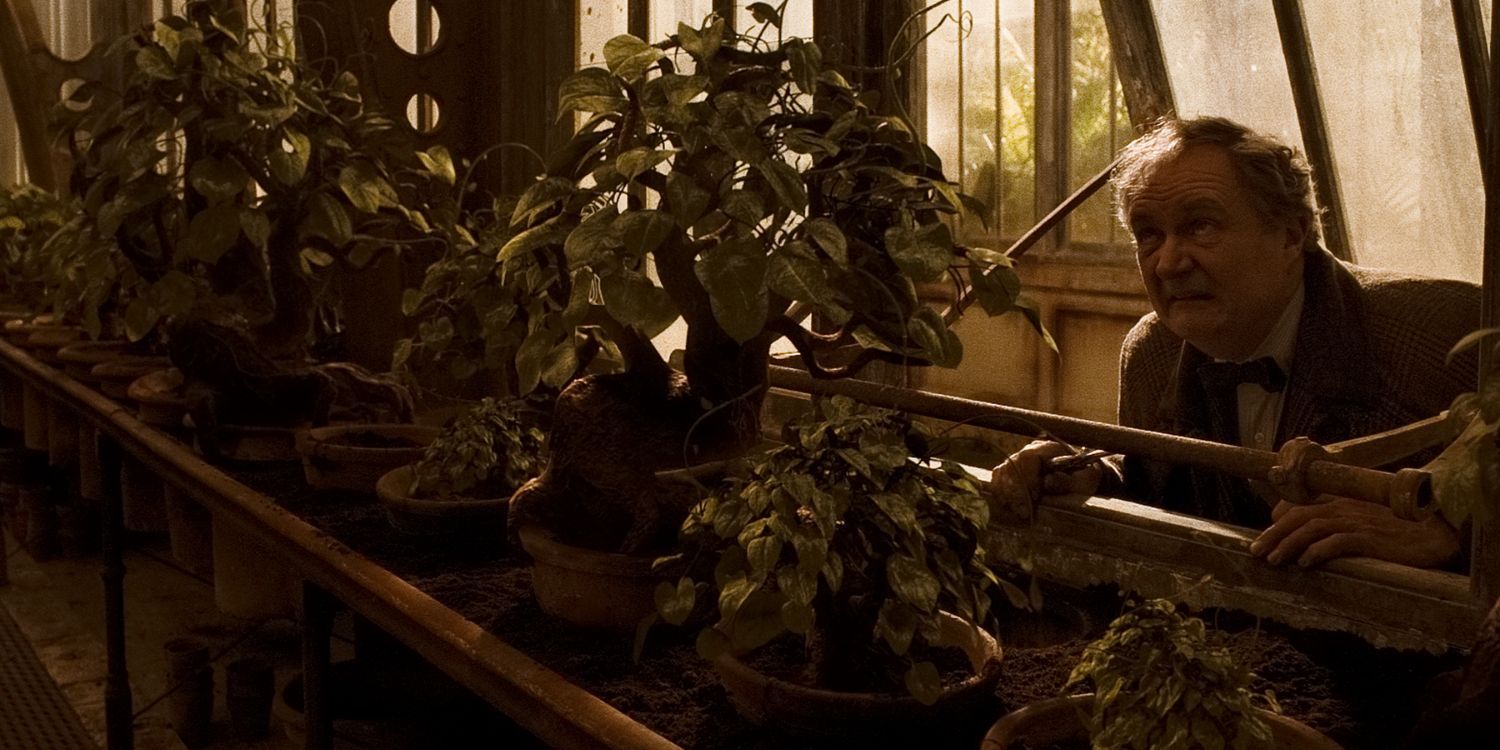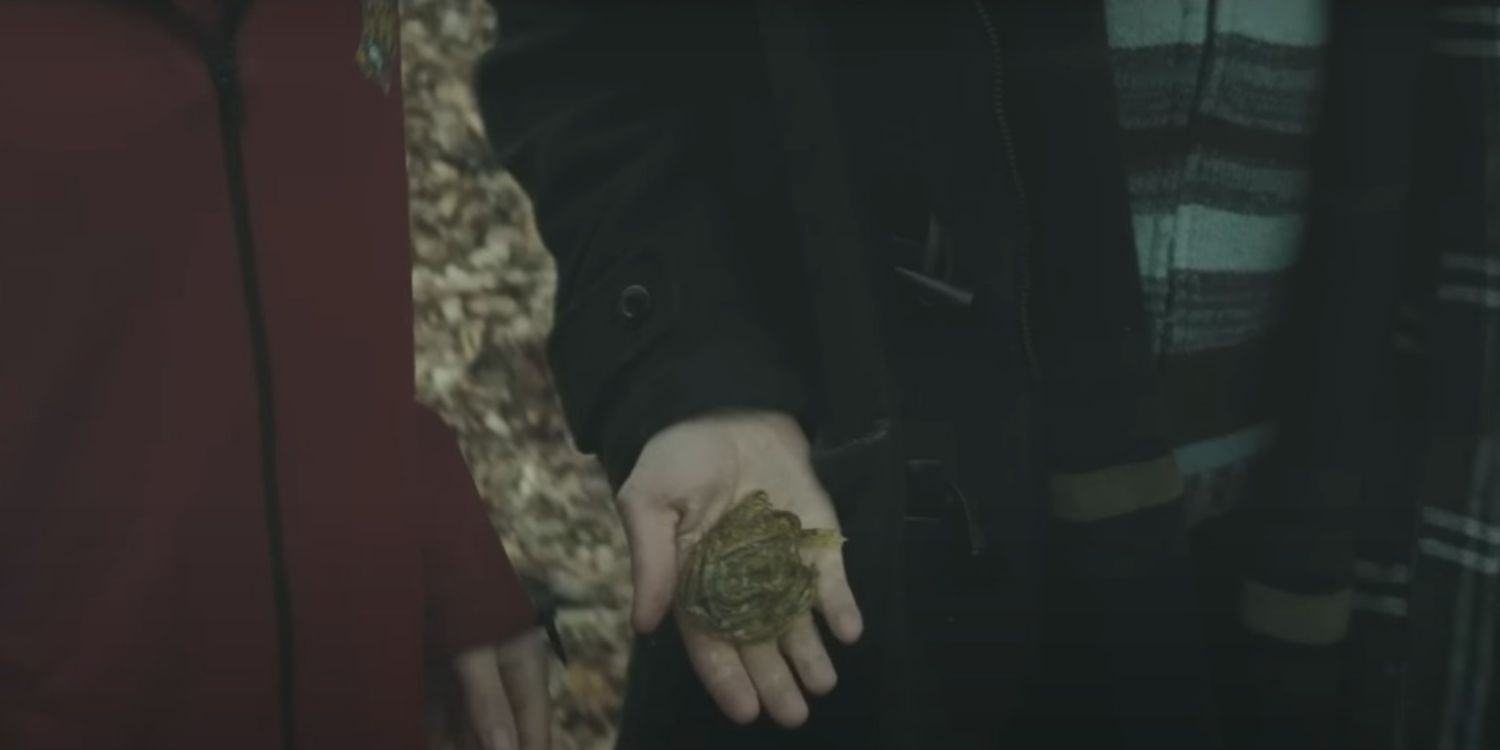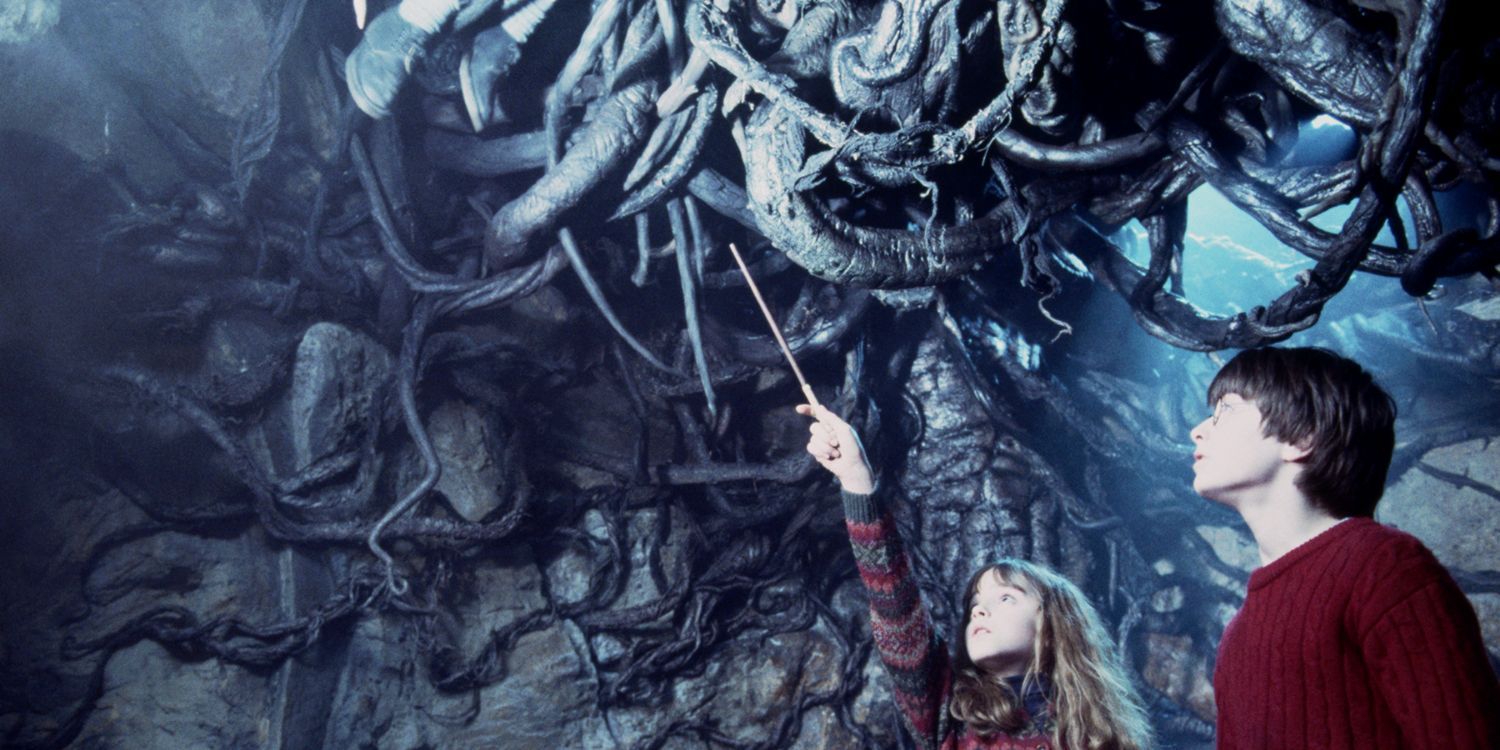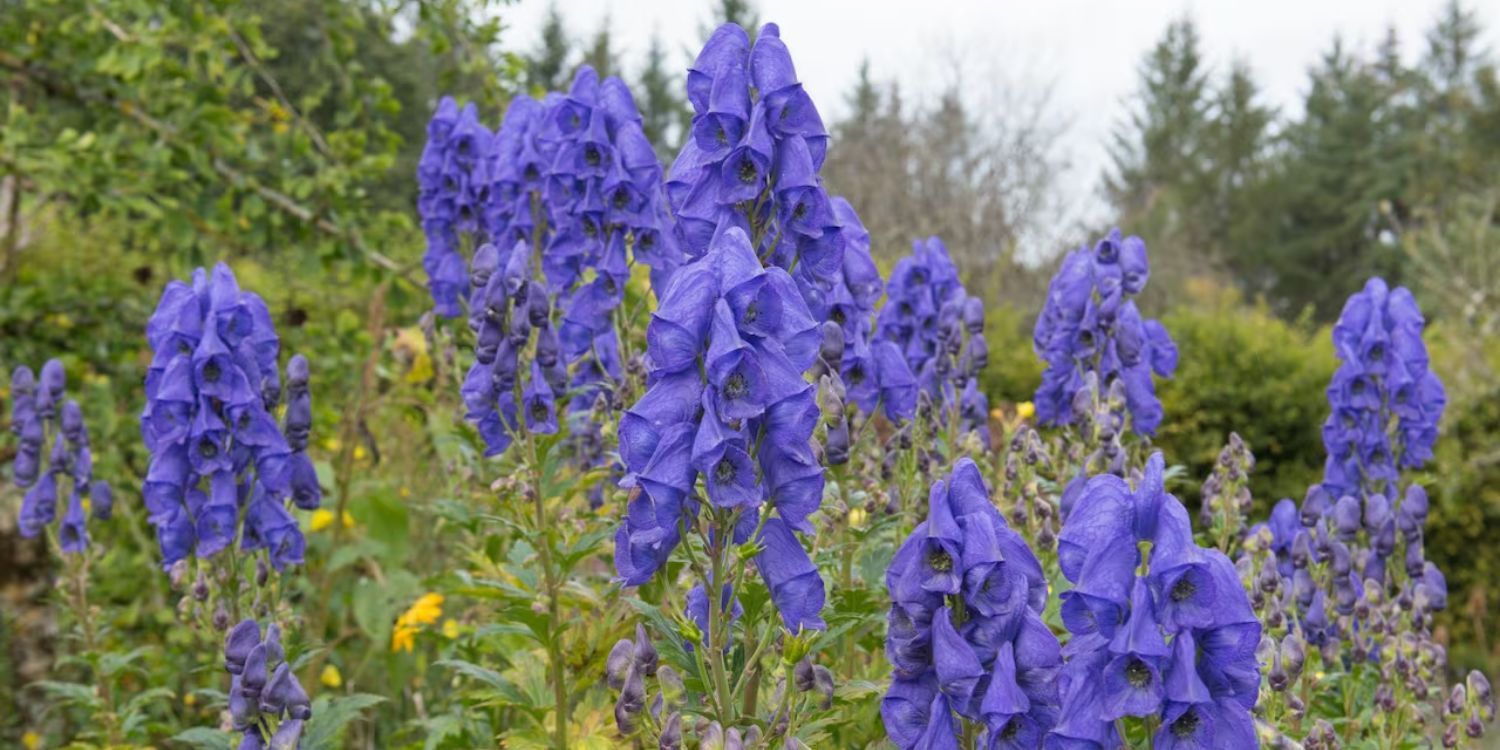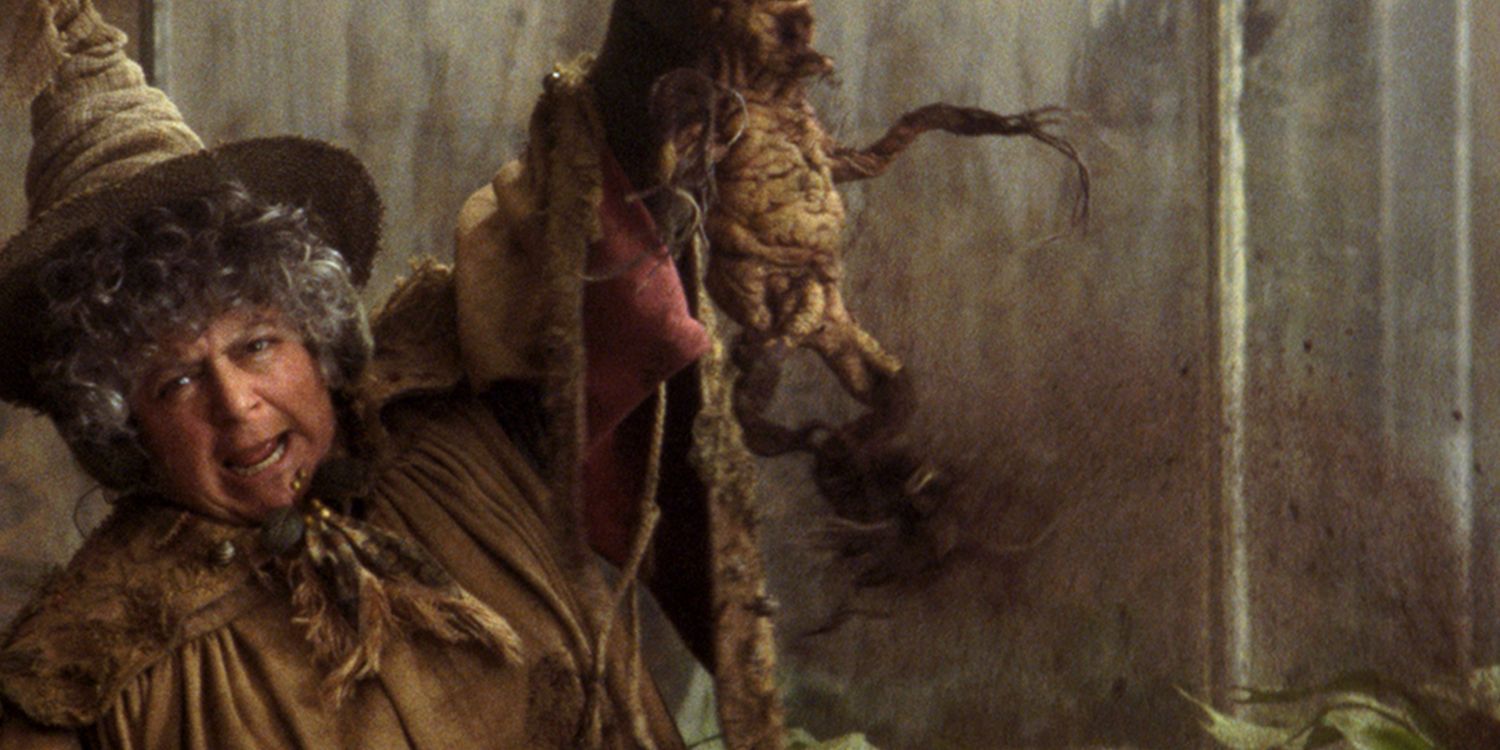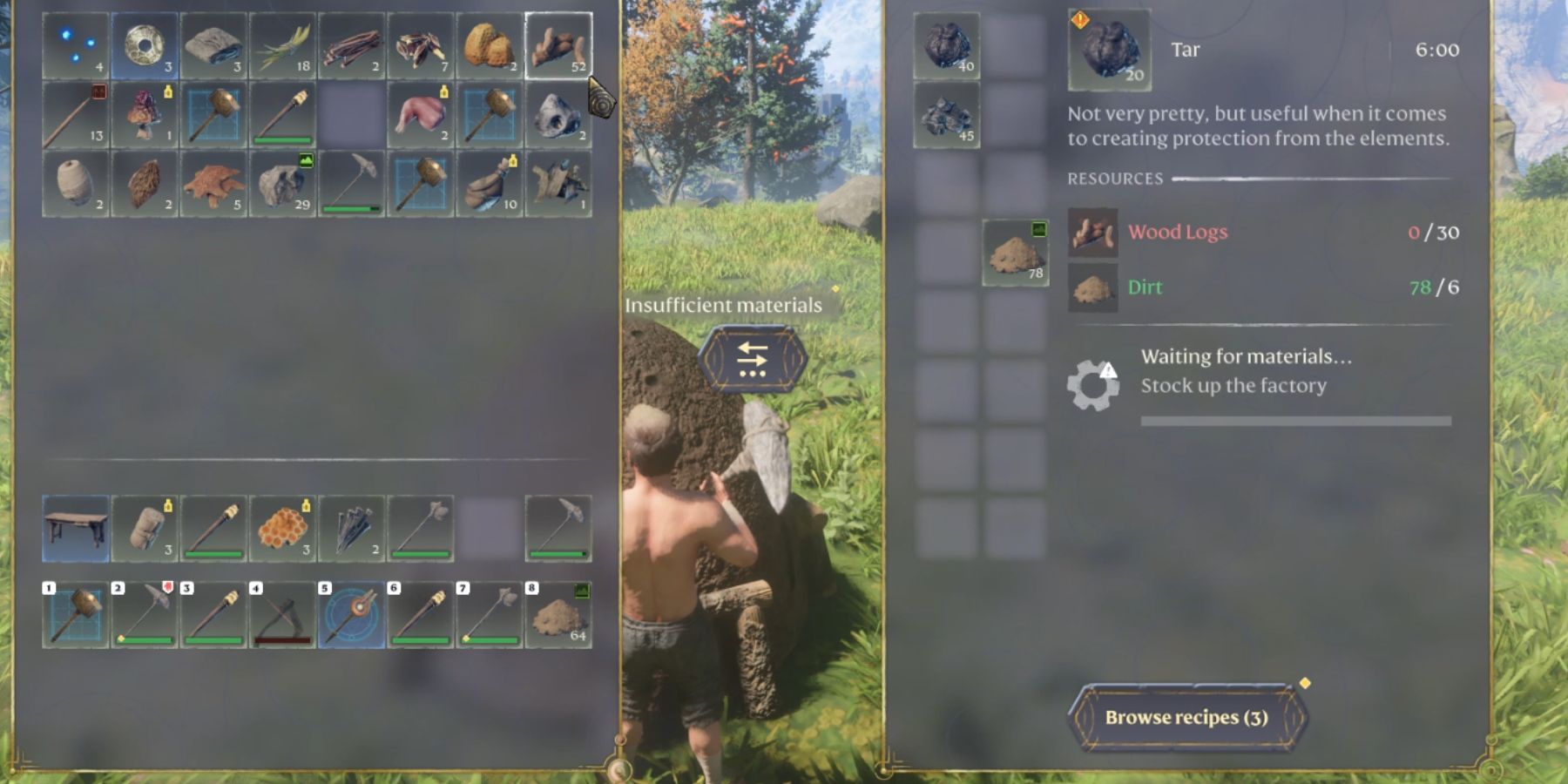Highlights
- Herbology is an underrated but crucial study in the magical world of Harry Potter, necessary for protection and healing against dark wizards and poisonous potions.
- Deadly plants like Belladonna and Venomous Tantacula have dangerous properties, but can be useful in potion making or immobilizing enemies if handled properly with severing charms or freezing spells.
- Magical plants like Gillyweed and Dittany have powerful healing properties, allowing the ability to breathe underwater or stop bleeding, making them valuable resources for witches and wizards.
Herbology is one of the most underrated studies in the magical world of Harry Potter, compared to Defence Against Dark Arts or Potion-making class. It is important to note that herbology is needed in both classes mentioned previously, as it is important in protecting or even healing oneself from dark wizards or poisonous potions.

8 Best Pets In Harry Potter, Ranked
These pets may not get as much screen time as they deserve, but the domestic animals of the Wizarding World deserve all the praise.
These magical plants in Harry Potter can be deadly, yet they are incredibly helpful with proper handling and careful treatment. From growing a gill, making poisons, and relieving lycanthropy symptoms, to healing someone who has been petrified, herbology is indeed one crucial knowledge a witch or wizard needs to possess.
1 Belladonna
The Deadly Nightshade
Bearing resemblances with real life’s Atropa Belladonna, this plant is a toxic plant that is used for potion making. It is unsafe for human consumption as its poison can be deadly to human digestion. Although poisonous, this plant is needed and taught to the students of Hogwarts as a standard potion-making kit.
Even in its real-life counterpart, it is said that it is one of the important ingredients, such as an ointment for flying if mixed with other hallucinogenic plants. The students are also taught to care for this plant in their Herbology class. Apollonia Black has been reported to pass away from consuming this plant after mistaking it for elderberries.
2 Whomping Willow
Violent Yet Valuable
This aggressive plant is known to be a powerful magical plant species as it will attack anyone and anything that dares to pass its territory. This violent plant is present in an important scene in Harry Potter and the Chamber of Secrets, where Ron crashes the flying Ford Anglia into it.
The tree itself is specifically planted and cared for by the Marauders, as a haven for Remus Lupin every time he has to transform into a werewolf. The tree itself can be immobilized by the freezing charm and if a creature – such as Peter Pettigrew in his animagus form – can press a knot near the base.
3 Venomous Tantacula
As Its Name Suggests, It Is Not To Be Played With
This deadly yet magical plant is described as a spiky toothsome creature with mobile vines that are ready to seize any living beings in its reach. Its shoots are venomous, its spikes are deadly, enough to immobilize humans that could lead to fatal accidents. The physical appearance of the fangs is equally alarming as its venomous capability.
Minerva McGonagall’s husband, Elphinstone Urquart is reported to have fallen to his demise after accidentally being bitten by this deadly plant. One of the ways to handle this plant is by doing the severing charm, which works to stun and sever the vines.
4 Gillyweed
For Any Aspiring Merpeople
It is a shame that humans’ ability to breathe underwater is severely lacking, but fortunately, Gillyweed will take care of that problem. The plant is described as a green slimy plant that resembles some type of seaweed. If consumed, one will grow a pair of gills, fish-like fingers, and built-in swimfins.

Harry Potter: 5 Most Useful Spells In Daily Life, Ranked
Some spells in the Harry Potter universe can make life a lot easier. These are the best ones witches and wizards can rely on in their daily lives.
This plant made its grand appearance in Harry Potter and the Goblet of Fire, specifically in the scene where Harry eats this magical plant to save Ron while being charmed and tied up underwater. This plant is recommended by the Herbology class star, Neville Longbottom.
5 Devil’s Snare
“Devil’s Snare, Devil’s Snare … What did Professor Sprout Say?”
This magical plant shares a similar physical appearance to very long huge root-like vines that intertwined with each other. It can strangle or trap anything and anyone that makes physical contact with it. It is best to stay calm if trapped in this dangerous plant. Otherwise, any resistance will bounce back and trigger its ability to full force.

Harry Potter: The Hidden Secrets In The Movie’s Music, Explained
The many nuances of each musical composition in the Harry Potter franchise serve as important motifs throughout the film series.
To defeat this plant, as can be seen in Harry Potter and the Chamber of Secrets, any charm that brings light or fire such as Bluebell Flames and Lumos Solem is very effective in getting rid of its constriction.
6 Dittany
Very Useful For Wounded Witches And Wizards
Described as a green-colored plant with leaves resembling big coins, this magical plant is highly powerful at healing shallow wounds and can stop bleeding. As a healing and restorative herb, it is capable of rejuvenating and regenerating wounded skin and, if consumed, can heal moderate wounds.
If mixed with silver, its ability to stop bleeding helps the victim of freshly infected people of lycanthropy to survive its bite, although not completely healed from the disease itself. The demonstration of its usage can be seen in Harry Potter and the Deathly Hallows where it is used for an injured Ron.
7 Aconite
Lycanthropy Is One Dangerous Disease
Also known as monkshood or wolfsbane, this magical plant is a very useful ingredient in potion-making. If handled properly, avoiding its poisonous leaves, flowers, and roots can be used in various potions. In real life, aconite was widely popular in medieval Europe where it was used as animal bait, especially for hunting wolves.
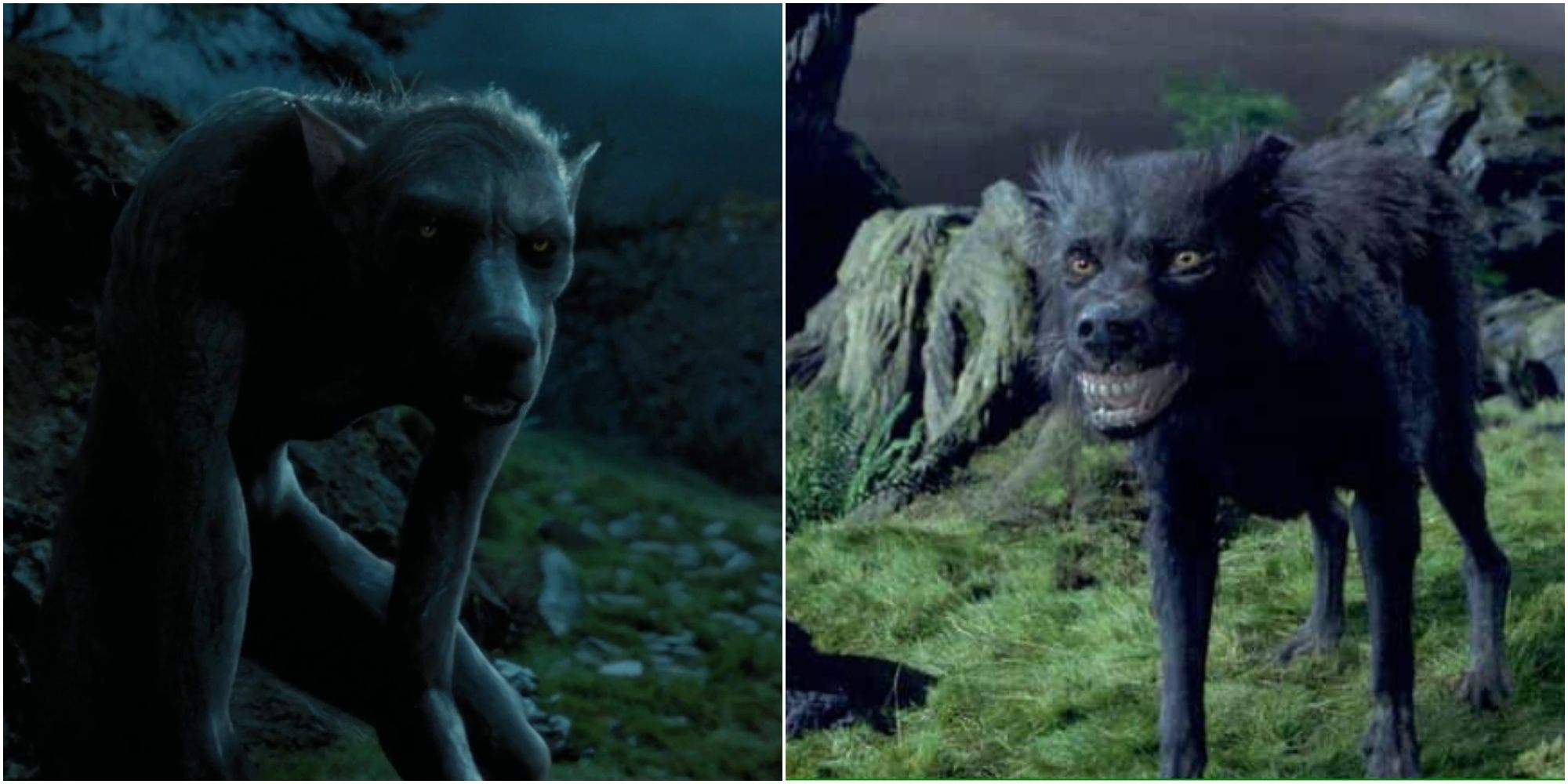
Harry Potter: What Is The Difference Between An Animagus And A Werewolf?
Harry Potter and the Prisoner of Azkaban sheds light on the differences between an Animagus and a Werewolf in the wake of Lupin’s arrival at Hogwarts.
In the magical world of Harry Potter, this plant is useful to relieve the symptoms of Lycanthropy, although not entirely curing the disease. Students are said to use dragon-hide gloves when handling the plant, to avoid any accidents involving its leaves. Remus Lupin is known to drink potions made out of Aconite’s roots and flowers, to ease the pain of this disease.
8 Mandrakes
The Crybaby That Saves People
Not only do they resemble humans when they are babies, but this magical plant also develops and behaves like any normal human being, but a plant-version. During their infant period, baby mandrakes will cry endlessly when not covered in earth, deafening and knocking people out who hear it without ear protection. During its adolescence, the plant became sensitive and behaved like teenagers in puberty, even including throwing parties with loud noises and being covered in acne.
When matured, this plant is seen to move to other pots, beginning to restart the cycle of life. This powerful plant is the main ingredient to heal people who have been transfigured, cursed, or petrified, as can be seen in Harry Potter and the Chamber of Secrets.


